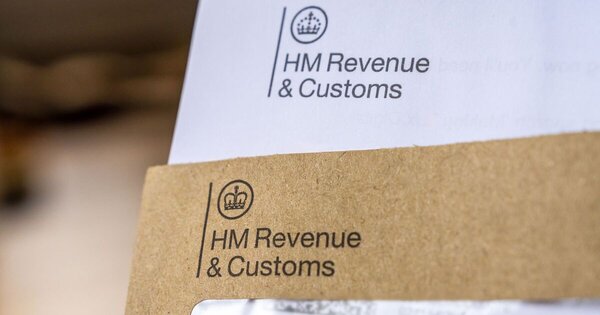What You Should Know
Tax credit overpayments happen when you receive more money than you were entitled to. This can occur for several reasons, such as not knowing how much tax credits you should receive or changes in your circumstances that weren’t reported promptly, which can affect your tax credit entitlement.
Maybe your income increased during the year or your children left full-time education. Perhaps you moved in with a partner, changing your household status. Sometimes, it’s simply because HMRC made a mistake with your calculations. If you have a previous claim, HMRC’s notional offsetting policy might reduce overpayments based on your earlier circumstances.
Whatever the cause, overpayments can lead to unexpected bills that HMRC will want to recover. However, they don’t have unlimited time to claim this money back.
How long does HMRC actually have to reclaim overpaid tax credits?
The standard time limit for HMRC to recover overpaid tax credits is 12 months from the end of the tax year when the overpayment occurred, following specific HMRC guidance. This gives them a reasonable window to identify and address discrepancies.
For example, if you were overpaid in the 2022/23 tax year (which ends on April 5, 2023), HMRC typically has until April 5, 2024, to start the recovery process. Once they’ve identified an overpayment within this timeframe, they can continue collecting even beyond the 12-month period.
An outstanding overpayment is communicated to claimants by HMRC, detailing the transfer of these debts to the DWP after claims are made. This includes information on the implications for recovering such debts and the available recovery mechanisms.
For ongoing claims, they’ll usually adjust your future payments rather than demanding a lump sum. This approach makes repayment more manageable for most claimants.

Paying Back Overpayments
Paying back tax credit overpayments can be a challenging and stressful experience. However, it’s essential to address the issue as soon as possible to avoid further complications. Here are some key points to consider when paying back overpayments:
- Recovery Methods: HMRC may recover tax credit overpayments from ongoing tax credit awards or by direct payment. This means they might reduce your future payments or ask you to pay the amount directly.
- Financial Hardship: If you’re unable to pay the full amount, you can ask HMRC to suspend recovery due to financial hardship. This can provide temporary relief while you get your finances in order.
- Payment Options: You can make payments to repay the overpayment by direct debit, online banking, or by post. Choose the method that works best for you to ensure timely payments.
- Debt Collection Agencies: HMRC may pass debts to private debt collection agencies in the early stages of recovery. It’s important to know that the use of a debt collection agency by HMRC will not affect your credit rating.
- Responsibility: The debt remains the responsibility of HMRC, not the agency. This means you should continue to communicate with HMRC regarding your debt, even if a collection agency is involved.
By understanding these points, you can take proactive steps to manage and repay your tax credit overpayments effectively.
Challenging Overpayments
If you disagree with the amount of tax credit overpayment or the decision to recover it, you have several options to challenge it. You can appeal, dispute, or address official errors. In some cases, HMRC may use a direct earnings attachment to recover overpayments directly from your wages, bypassing the need for a court order. Appeals must be made directly to HMRC, even if the overpayment has been passed to the Department for Work and Pensions (DWP) or the Department for Communities (DfC) for recovery.
The time limit for appeals is 30 days, but this can be extended to 13 months if a late appeal is accepted. Disputes have a 3-month time limit, while official errors can be addressed up to 5 years after the decision date. Additionally, you can reduce the amount of the overpayment through notional offsetting, which allows for adjustments based on what you should have been entitled to.

What if fraud or serious errors are involved?
When HMRC suspects fraud or deliberate errors, the rules change dramatically. In these cases, they can look back up to 5 years, giving them substantially more time to investigate thoroughly. HMRC may also use direct recovery methods to collect the debt, which involves passing the debt to Debt Management for collection.
In cases of fraud or serious errors, HMRC may transfer outstanding debts to the DWP for collection, emphasizing the various recovery methods available.
If you knowingly provided false information or deliberately failed to report changes, HMRC has much more time to recover money. For the most serious cases, they can even take legal action within 6 years of discovering the overpayment. Additionally, taking county court action may be considered if other recovery methods fail, highlighting the complexity of recovering tax credit overpayments.
The burden of proof shifts to HMRC in these situations. They must show evidence that you acted dishonestly or negligently, and these extended recovery periods start from when HMRC discovers the issue, not when the overpayment happened.
What happens if HMRC made the mistake?
When the overpayment was caused by HMRC’s error, they generally have a much shorter window of just 3 months to recover the money. This protection acknowledges that you shouldn’t be penalised for their mistakes.
This shorter timeframe applies when you provided all the correct information, but HMRC processed it wrongly. However, HMRC must prove you could reasonably have known about their mistake. If the error wasn’t obvious, you may be able to challenge the recovery if HMRC decides to pursue it.
In some cases, you may be required to complete an expenditure form to provide HMRC with detailed financial information, ensuring that repayment plans are manageable and reasonable.
The “reasonable belief” test is important here. Would an average person in your situation have spotted the mistake? Keep all communications with HMRC as these records can be vital if you need to prove you provided correct information.

Joint Claims and Overpayments
In the case of a joint tax credit claim, an overpayment debt can be collected by HMRC in full from either partner. Both partners are equally responsible for the joint debt, and HMRC will collect overpayment debts from either partner based on individual circumstances. Typically, HMRC will write to both claimants and ask them to pay 50% of the overpayment.
However, if one partner believes there should be a difference in what each should repay, HMRC will consider both parties’ circumstances. Both claimants can agree between themselves to pay different amounts and inform HMRC of this decision. If debts from a previous joint claim are transferred to Universal Credit, they will be split 50/50, ensuring both parties share the responsibility.
How does having an ongoing claim affect recovery?
If you’re still receiving tax credits, HMRC will usually recover overpayments by reducing your future payments. This approach avoids the need for separate repayments and spreads the burden over time. HMRC may recover overpayments from ongoing benefit awards, such as Universal Credit, depending on the claim circumstances. HMRC uses various methods to recover debts, including direct recovery from ongoing Universal Credit payments.
They’re limited in how much they can reduce your payments – typically no more than 10-25% for most claimants, depending on your circumstances. If reducing your payments would cause serious hardship, you can ask for a lower recovery rate.
The tax credit system played a significant role in managing debts before its closure, impacting how HMRC and DWP handle debt recovery today.
HMRC must send you a formal notice before they start reducing your payments, giving you a chance to challenge the decision. For larger overpayments, recovery might be spread across several years to keep the reductions at a manageable level.

Managing Overpayment Debt
Managing tax credit overpayment debt requires a proactive approach. Here are some steps you can take:
- Contact HMRC: The first step is to contact HMRC to discuss your options for paying back the overpayment. They can provide guidance on repayment plans and other available options.
- Seek Professional Advice: Consider seeking advice from a benefits adviser or a debt advisor. These professionals can offer tailored advice based on your specific situation.
- Financial Hardship: If you’re experiencing financial hardship, ask HMRC to suspend recovery. This can give you some breathing room to manage your finances.
- Payment Plan: Make a payment plan to repay the debt in instalments. This can make the repayment process more manageable and less stressful.
- Keep Contact Information Updated: Ensure your contact information is up to date to receive important notifications from HMRC. This will help you stay informed about your debt and any changes to your repayment plan.
By taking these steps, you can manage your tax credit overpayment debt more effectively and avoid further complications.
Transferring Debts to DWP/DfC
When you move to Universal Credit, HMRC is likely to transfer any outstanding tax credit debt to the Department for Work and Pensions (DWP) for recovery. Once you are receiving Universal Credit, the DWP will take over the recovery process for any outstanding tax credit debts. Once transferred, the debt will be treated as a Universal Credit overpayment. However, if there is an ongoing dispute or mandatory reconsideration, the debt should not be transferred. If you have any questions or concerns about repaying the debt, it’s important to contact DWP or DfC directly to discuss your situation and explore your options.
What rights do you have when facing an overpayment recovery?
You have the right to appeal within 30 days of receiving an overpayment notice. This deadline is strictly enforced, so it’s crucial not to delay if you believe the overpayment is incorrect. HMRC may transfer debts to private debt collection agencies early in the recovery process, so understanding their role is important.
You can request a detailed breakdown showing exactly how HMRC calculated the overpayment. Additionally, if paying back would cause serious financial problems, you can apply for a hardship reduction or manageable payment plan.
If you are experiencing mental health issues, HMRC should approach your case with sensitivity, and you may need to provide documentation from healthcare professionals.
Even if the debt is transferred to a collection agency, the debt remains the responsibility of HMRC, so it’s important to understand your repayment obligations and processes.
You’re entitled to clear explanations in plain English about why the overpayment happened. I once helped a client who received a confusing overpayment notice; after requesting clarification, HMRC discovered they had actually miscalculated and reduced the amount substantially.
End of the Tax Year and Overpayments
Tax credits ended for everyone on 5 April 2025, but you might still receive a letter from HM Revenue and Customs (HMRC) stating that you need to pay back a tax credits overpayment. It’s crucial to address this as soon as possible. If you fail to make a new claim for Universal Credit after being overpaid, HMRC will directly seek repayment from you.
There are various ways to pay HMRC, including in instalments. If you’re disputing the overpayment, you might still need to start making payments to HMRC. If your dispute is successful, you will get this money back. Paying back a tax credits overpayment is considered a priority debt, so it’s important to deal with it promptly to avoid further complications.

Has Universal Credit changed how tax credit overpayments are handled?
Yes, the move to Universal Credit has changed how some tax credit overpayments are recovered. The transition has created new processes that claimants need to understand, including the use of universal credit payments for recovery. HMRC and the DWP can deduct amounts from UC payments to recover tax credit overpayments.
If you’ve switched to Universal Credit, any outstanding tax credit overpayments may transfer to your Universal Credit account. The Department for Work and Pensions (DWP) takes over the recovery process once you’re on Universal Credit.
Different rules apply to recovery rates under Universal Credit, which might be higher or lower than under tax credits. Special provisions exist if you’re vulnerable or would face extreme hardship from the recovery. Additionally, joint overpayment debt can complicate matters for couples, as HMRC may pursue one partner for the full amount while the other may only be responsible for half, especially after a household breakdown.
What should you do if you receive an overpayment notice?
Act quickly! The 30-day window to challenge an overpayment is strictly enforced, so it is crucial to claim promptly. Check all the details carefully, as HMRC does make mistakes in their calculations sometimes.
Gather evidence of any changes in circumstances that you reported and when you reported them. This documentation can be crucial in demonstrating that you fulfilled your responsibilities.
Tax credit claimants must be particularly vigilant about reporting changes in their relationship status, such as transitioning from a couple's claim to a single claim, to avoid complications with their entitlements. This includes scenarios like separation or the death of a partner.
If you’re struggling financially, contact HMRC right away to discuss your options for reduced repayments. Keep copies of all communications with HMRC – these could be vital if you need to challenge their decision later.

Final thoughts on tax credit overpayment recovery
Understanding the time limits for tax credit recovery puts you in a stronger position to protect your finances. Always report changes in your circumstances promptly to avoid overpayments building up in the first place. Overpayments are often assessed based on claims made during the previous tax year, so staying informed about your tax situation is crucial.
If you owe more than £1,000, HMRC has the authority to deduct money directly from your bank account, emphasizing the importance of managing your finances to avoid such situations.
Keep good records of all your communications with HMRC – this simple habit can save you a lot of stress later. If you’re finding tax matters overwhelming, consider getting help, as tax rules are complicated and constantly changing. In cases of joint claims, each former partner may be pursued for the full amount of any overpayment, so understanding your responsibilities is essential.
Pie is the UK’s first personal tax app designed specifically for working individuals dealing with tax burdens. Unlike other solutions, Pie offers integrated bookkeeping, real-time tax figures, and simplified tax returns with expert advice when you need it.











